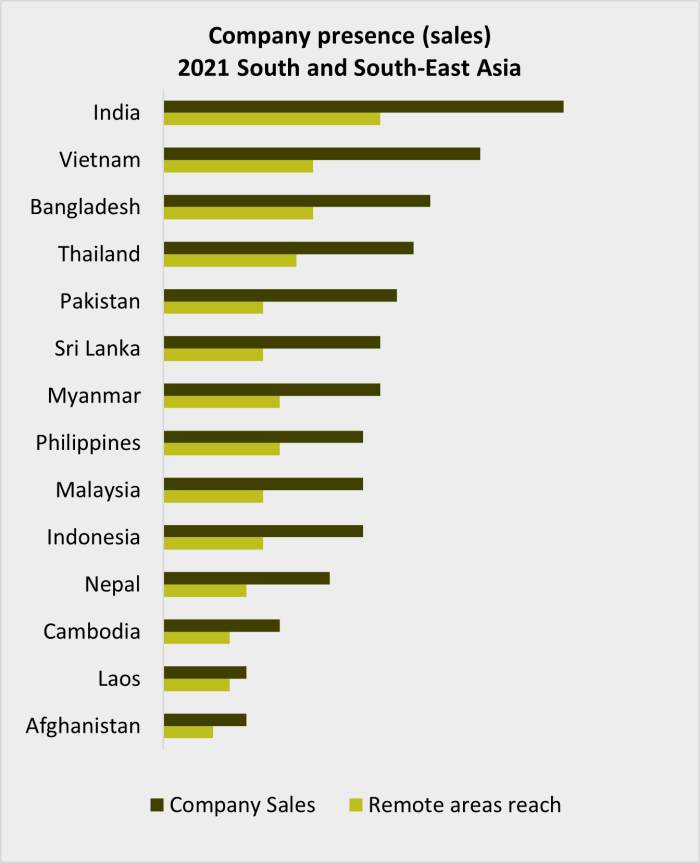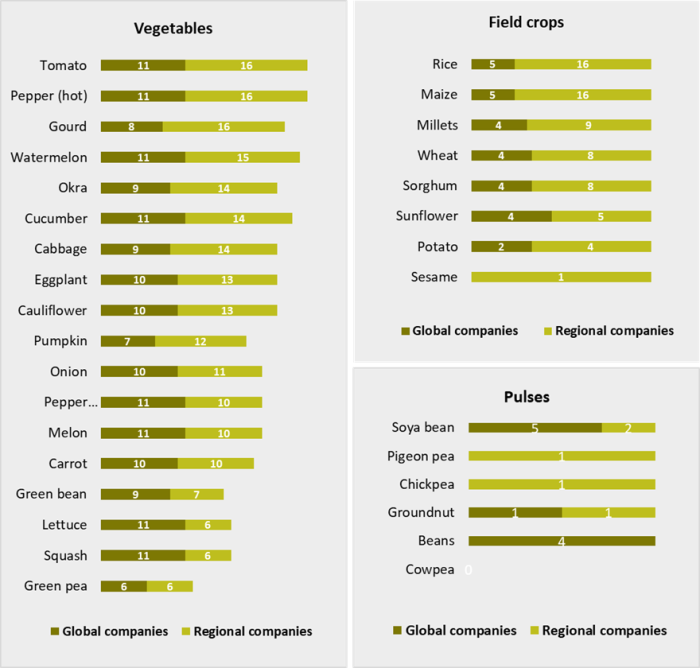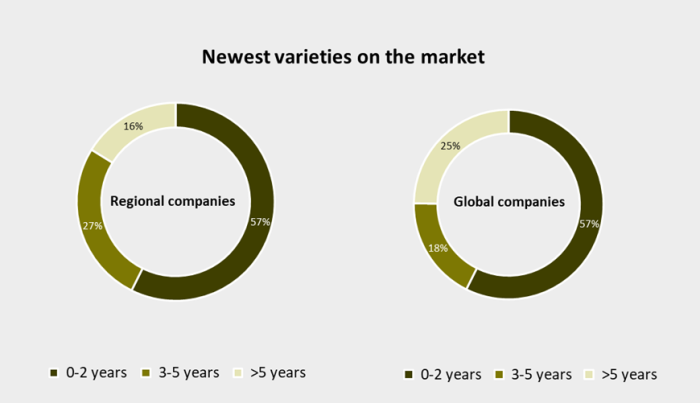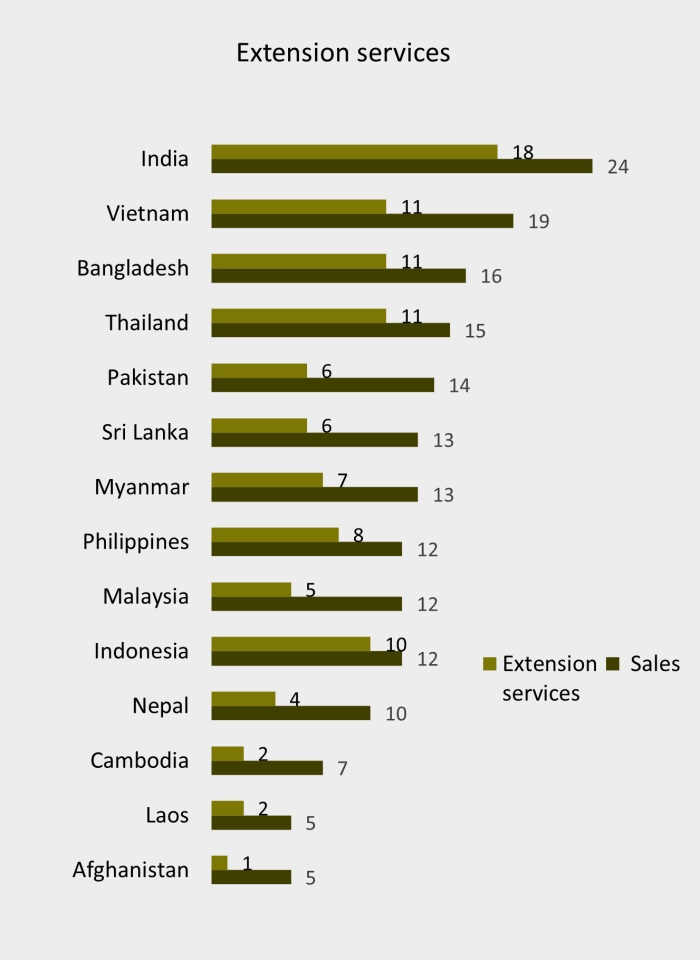Regional finding
Key findings for South and South-East Asia
Access to quality seeds for farmers is an essential element of creating an enabling environment to realise the potential of the rural economy and improve food security in developing countries. Smallholder farmers are the backbone of food production in South and South-East Asia, but they still cannot produce sufficient and nutritious food for the growing population affected by hunger and malnutrition today. The UN’s 2021 report on the state of Food Security and nutrition indicates that 418 million people in Asia are suffering of hunger, 57 million more people than in 2019, partly because of the Covid-19 pandemic.
It is critical to address the challenges smallholder farmers face in achieving food security and ending hunger in the region. The seed industry has the most potential and greatest role in developing a robust local seed sector that improves smallholder farmer productivity and income. The Access to Seeds Index highlights the efforts of leading seed companies to improve access to seeds for smallholder farmers in emerging economies. The index seeks primarily to identify leadership and good practices across the seed industry, providing an evidence base for discussing where and how companies can step up their efforts.
In 2019, the Access to Seeds Index evaluated 24 companies in the region for the first time. The index showed that the industry is present in all countries and is highly research-driven, releasing new varieties for a wide variety of crops and tailoring seed package sizes for smallholders. However, training to help smallholder farmers adopt new technologies was not often offered in all countries where there were sales activities. In addition, breeding and production activities were concentrated in only a handful of countries.
The 2021 index shows that the seed industry continues to be driven by innovation and release of new varieties to help drive productivity in the region. The index expanded its scope to assess 31 seed companies, including 13 global and 18 regionally based companies. Companies have further continued their access to seeds activities all 14 index countries. Still, they can improve their distribution to reach remote rural areas closer to the farm gate. Crop portfolios are broad, mainly for vegetables and cereals; however, pulses rich in nutrition are still underrepresented. Hybrids are the most famous seed type for many vegetable and field crops, showing the willingness of smallholder farmers to adopt improved technologies. Companies can increase their training support to match their efforts in sales activities to ensure that smallholder farmers maximise the benefits of quality seed of improved varieties.
Furthermore, the industry must increase efforts to invest in developing the local seed businesses such as seed production, breeding and processing activities in the region. Such investments enable improved technology, knowledge and resource sharing to benefit smallholder farmers in achieving food security and ending hunger. Although seed companies significantly invest in seed production in the region, effective tracking systems to ensure social and labour rights are lacking. Further, companies can invest in breeding programmes and processing activities in more countries since these activities are still concentrated in a few countries.
Companies are present with sales in all index countries but can increase their reach to remote areas
Seed companies evaluated by the index report sales presence of quality seed of improved varieties in all 14 index countries. Five or more companies are present per country. However, only half of the companies with sales activities in each country reach remote rural areas.
Vegetables continue to dominate company portfolios, however pulses rich in nutrition are still underrepresented
Company portfolios in South and South-East Asia are broad, mainly for vegetables and cereals; however, pulses rich in nutrition are still underrepresented. In addition, companies continue to offer more hybrids than Open Pollinated Varieties indicating the adoption for improved varieties for smallholders in the region.
Training for smallholder farmers is centered around countries with an established seed sector
Twenty-four companies report offering extension services to smallholder farmers in all 14 index countries, with a least one company present per country.
Companies still concentrate their investments mainly in six countries
Six countries, India, Thailand, Indonesia, Vietnam, the Philippines and Bangladesh, continue to attract most investments in local seed sector developments such as breeding, production and processing. In addition, companies invest in one or two business activities in Myanmar, Nepal, Pakistan and Laos, but no such investments are reported in Cambodia, Afghanistan, Sri Lanka and Malaysia.




